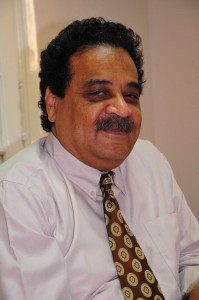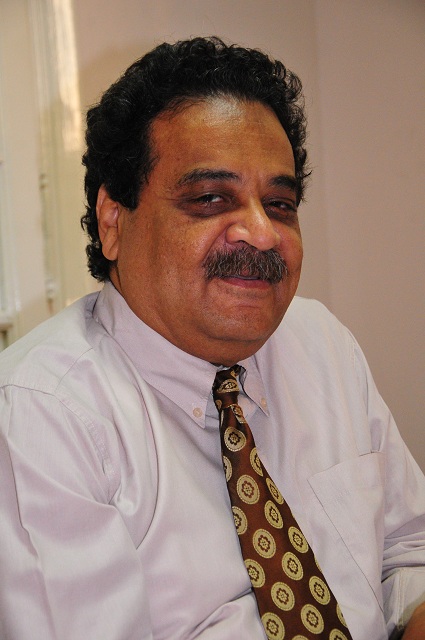
If what Egypt wants from the US, or to be more accurate, what Egypt’s political elite want, appears to ruling circles in the US to be vague and unclear, then it must also be said that what the US (or to be more accurate, America’s ruling elite) wants from Egypt, appears extremely vague and unclear to the political circles within Egypt, both those in the ruling coalition and the opposition.
We touched on these issues in the last two articles in which we responded to questions regarding, “what Egyptians want from America,” after which it became clear that what Washington desires is for Egypt to become more receptive to American advice and suggestions, or in other words, to become more obedient.
This does not only mean implementing those policies which Washington sees as serving its own interests in the region, but also those which Washington feels best serve Egypt’s interests as well, particularly with regards to how best to administer domestic affairs within the latter.
While such a scenario may appear to be unclear and confusing to Egypt’s elite, it is however, of utmost significance to the US, which is obsessed with the notion of exporting the American model abroad and creating a new world order in its image, albeit in a way that is oftentimes unclear and not rooted in any clear strategic approach.
It has become clear for many reasons that exporting the American model to Saudi Arabia would be impossible, due to the fundamentalism of the Saudi regime, which also happens to be America’s closest ally in the region after Israel. The Saudi regime is rooted in a series of socially oriented values, customs and traditions that conflict with those prevalent within the US.
For this reason, US administrations long ago came to terms with the fact that Saudis would have to be allowed to administer their own internal affairs, with of course some exceptions following the period after the attacks on the World Trade Centre in September, 2001, after which a number of voices within the US began calling for change to be implemented in all countries throughout the region, among them,or perhaps, most of all, in Saudi Arabia.
These calls were made based on the assumption that such regimes were responsible for funding and supporting terrorism, a view which began to lose traction after the election of Barack Obama, who sought, under the banner of deferring to the will of the people of the region, to hand the Middle East over to political Islamists, based on the idea that “if they want to eat shit…give them a spoon.”
Without the aid of Washington, political Islamists would not have been able to come to power in the first place, despite their status as the most powerful political and social force in the region. That being said, it was no shock to Egypt’s secular political elite to see the Muslim Brotherhood’s popularity decline and deteriorate mere months after rising to power.
Washington agreed to support the Brotherhood due to the latter’s willingness to adhere to the demands of the former, particularly that of working to protect Israel’s security (by way of partitioning Palestine into two separate entities; that of Gaza and the West Bank with its capital in Ramallah), implementing the dictates of the International Monetary Fund and creating a Sunni belt loyal to the United States for the purpose of confronting Iran.
However it was the willingness of the Brotherhood to adhere to such demands (and perhaps others) that turned out to be more important than any of the demands themselves, as the Brotherhood had long demonstrated after the attacks of September 11th that it was willing to cooperate with the United States to combat terrorism, making them a strategic ally who could deliver on the demands of Washington.
The convergent space within which the Brotherhood and the United States built their alliance was purely pragmatic, a fact which would help colour and formulate the policies of both sides. Such policies were therefore not dictated by any particular set of values or principles regarding notions of friendship or enmity and subsequently did not take into account their possible long-term effects on the region.
The world has long remained baffled by US political pragmatism; however this is particularly the case in Egypt, where conservative forces remain deeply entrenched and intact. To the country’s ruling elite, whose opinions are coloured by their historical experiences, such pragmatism appears both confusing and bothersome, and evidence of the fluidity of US policy in the region and the quickness with which it can change; all evidence that the United States is not a reliable partner, who one can count on and trust to live up to its promises.
For decades Washington has been attempting to convince the world that its policies are built on a strong foundation of values and principles, yet the actions of the US around the world have shown this to be a false presumption.
The pragmatism which governs US policy day by day, has not only demonstrated that the US is incapable of adhering to its own stated set of values and beliefs, either at home and abroad, but further showed that it is incapable of presenting a clear vision of how best to run and administer the world. That being said, such pragmatism has worked to isolate and confuse even those few groups who previously sought to cooperate with US policy.
Let us take a step back for a moment: while the US has been showing off its status as leader of the free world, claiming to be the primary (or at times sole) promoter of democracy and human rights abroad, the American people have long ago woken up to the fact that at one point in history, coloured people were prevented in some states in the south from sitting in seats reserved for whites on public transportation, or sending their kids to attend “white” schools.
Such a scenario helped start the civil rights movement, which was stained in the blood of Martin Luther King Jr. and other freedom and equality activists. When will the American people wake up (and I should point out here that I am not referring to the American political elite which is, and always has been complicit) and realise that their country has not been capable of running the world since the fall of the Berlin wall and the dissolution of the Soviet Union ? When will they allow for the creation of a new world order, not ruled and administered under one government, that can be free from the violent conflicts of the past, and allow people to live in peace and prosperity? Such a vision is one that has been promised by American administrations for years, and nothing stands in the way of its implementation.
Why has the United States failed to implement such a system, despite the fact that the course of world events have long been pointing towards that direction?
Another question: After the dissolution of the Soviet Union, and Yasser Arafat’s signing of the Oslo Peace Accords, and taking into account the policies of most countries in the region regarding the Israeli-Arab conflict (with the exception of Syria) have come largely to fall in line with that of the United States, why has the latter failed to establish peace in the Middle East? Is it the result of weakness or complacency?
America’s ruling elite continues to criticise the perpetration of human right violations throughout the world while turning a blind eye to crimes of racism committed on its own soil. Such behaviour is irresponsible, and has been dictated by America’s pragmatism, which does not adhere to any particular set of morals or principles rooted in humanity. Today we see the same ruling elite turning a blind eye to the chaos that has spread throughout the region and the world, as if they are not responsible for its perpetuation or are incapable of reigning in its excesses.
Is the goal of such chaos to help achieve the interests of small groups of people within the United States? Or does it prove that America’s ruling elite is no longer able to control the world as it used to? Finally, what is the future of the relationship between the Brotherhood and the United States on a pragmatic level?
Perhaps the answer to these questions will be presented in future articles, God willing.



